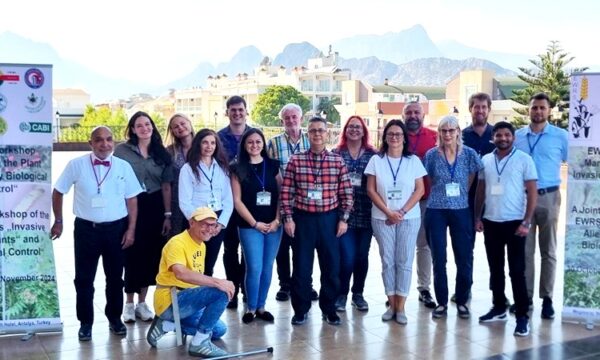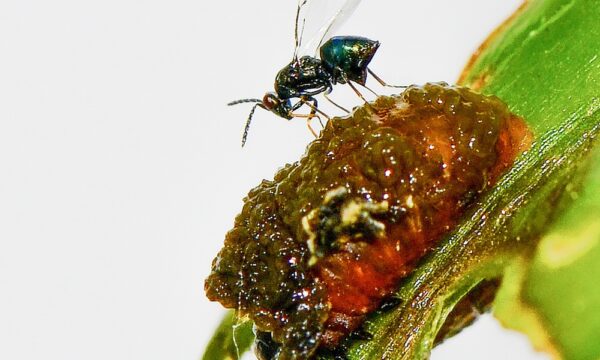In a new video from BBC Earth, CABI’s Dr Arne Witt tells us about the devastating impact of Chromolaena odorata, commonly known as ‘Devilweed’.
As part of the BBC’s Our Green Planet initiative, the video raises awareness about the impact of invasive species on biodiversity and livelihoods.
Dr Witt describes the spread of Devilweed as a “green invasion” and outlines the way it negatively affects local communities, livestock, and biodiversity.
Plus, he explains how biological control, through the use of natural enemies, can be the solution by giving native plant species “an opportunity to compete on an even ground with chromolaena.”
Invasive species disproportionately affect vulnerable communities in poor rural areas, especially in low- and lower-middle-income countries, because they depend directly on natural resources and healthy ecosystems for their survival.
Invasive species are also one of the biggest threats to biodiversity; impacts which are likely to increase as a result of climate change. Biodiversity loss reduces the resilience of natural ecosystems to climate change, increasing the vulnerability of already marginalized communities to disease, water shortages and hunger.
As Dr Witt says, “We depend on this biodiversity for our survival [and] we have to work with nature and not against nature.”
Find out more
Chromolaena odorata datasheet on CABI’s Invasive Species Compendium
Invasive species – Prevention, early detection and management of invasive pests
Green Invasion – Destroying livelihoods in Africa
Invasive species management: a policy tool for integrated climate adaptation
Climate change and biodiversity – Helping farmers adapt to climate change
Related News & Blogs
Biological control in action: Zambia’s field days on fighting fall armyworm
Experts from CABI recently held two field days and an expo in Zambia, showcasing innovative approaches to pest management to 584 farmers, agro-dealers and other stakeholders to help raise awareness of approaches to tackle the invasive fall armyworm (Sp…
11 June 2025




